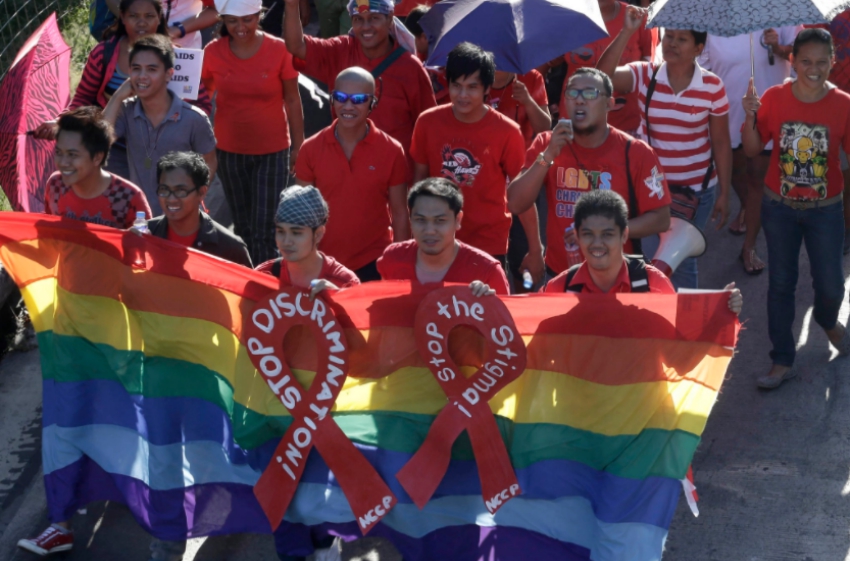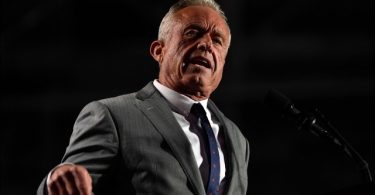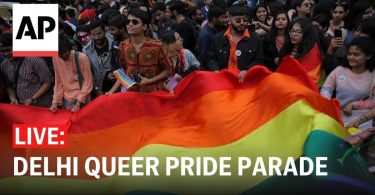Photo: Twitter via @AsCorrespondent
HIV has become such a problem in the Philippines that the government declared it a ‘national emergency’ around the issue.
New HIV cases jumped a ‘terrifying’ 140% in only six years from 4,300 new cases in 2010 to about 10,500 in 2016.
But given how prevalent HIV is, people living with HIV (PLHIV) still face high levels of discrimination in the workplace.
Kevin, 36, worked in a call center until he was forced to quit. When his bosses found out he was living with HIV they pressured him to resign. Kevin was left without medical benefits and had no idea how to fight back against what happened to him.
‘As a result, I lost not only my employment but also the benefits due me after I left,’ he said.
But Kevin is not alone. Workers who have been discriminated against because of their HIV status very rarely seek redress.
A report released today by Human Rights Watch (HRW) found even though the Philippines has strong laws, which criminalizes workplace discrimination against people living with HIV, they are not often enforced by the government and authorities.
‘The Philippines faces a double whammy of increasing HIV infection and fears by workers with HIV that they can’t seek justice if they are discriminated against on the job,’ said Carlos Conde, HRW’S Philippines researcher.
‘The government needs to ensure that people living with HIV get better protection in their jobs and that the public gets more and better information on HIV.’
Some of the kinds of workplace discrimination PLHIV in the Philippines face include; refusal to hire, unlawful firing, and forced resignation.
For some PLHIV they said their employers either ignored or helped workplace harassment of employees who are HIV positive.
But due to HIV stigma many people did not file formal complaints. They were often worried how it might affect future employment opportunities.
‘Most problems arise pre-employment/pre-engagement of the worker,’ said Maria Ricasion Tugadi of the Department of Labor and Employment’s National Labor Relations Commission.
‘If during the mandatory health checkup it comes out that the potential worker is HIV positive, the employer may possibly withdraw the offer.’
No exact figures of discrimination
But the extent of workplace discrimination is hard to measure, HRW said.
Government agencies responsible for investigating and prosecuting violations of the HIV/AIDS discrimination laws do not have a database of complaints.
HRW called on President Rodrigo Duterte’s government to create a major education and awareness campaign for PLHIV. The campaign should educate them of their rights around workplace discrimination.
It should direct concerned agencies to create and publish regularly updated databases of discrimination cases. And it should conduct an expanded public education campaign about HIV and address the wider issue of HIV stigma.
‘The workplace experiences of people living with HIV bring to light the tragedy within a tragedy of the HIV epidemic in the Philippines,’ Conde said.
‘The Duterte administration will need to act to ensure that the increasing numbers of people with HIV don’t result in ever greater workplace discrimination.’







